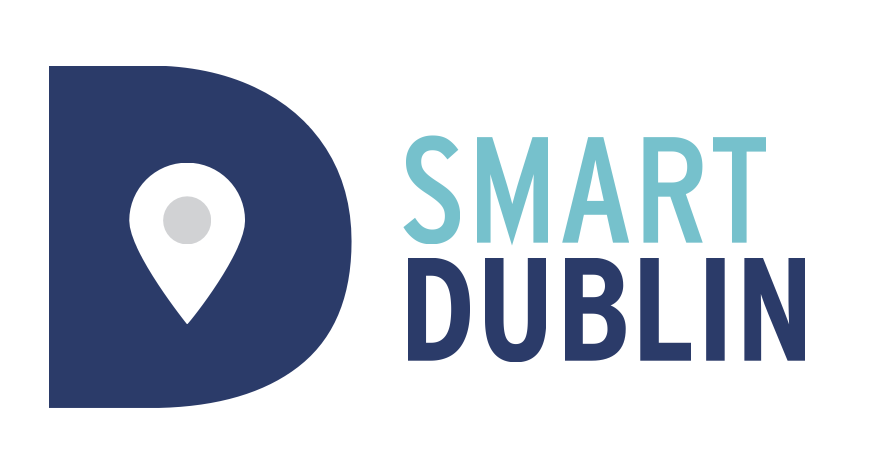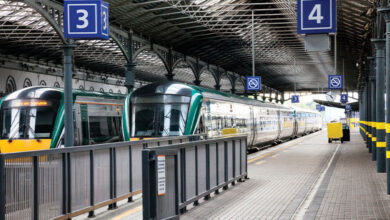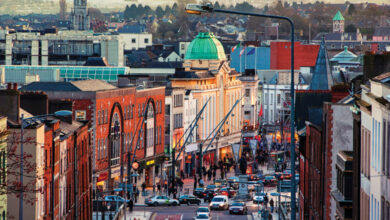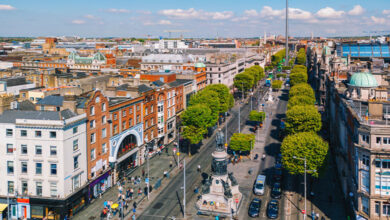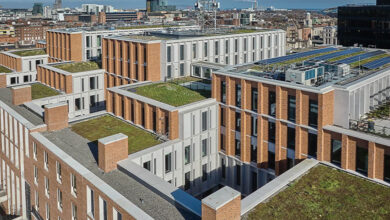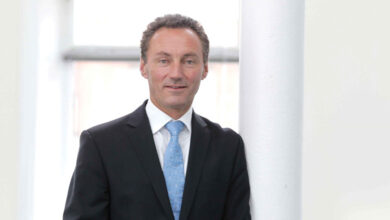Smart Dublin: Open, connected, and engaged
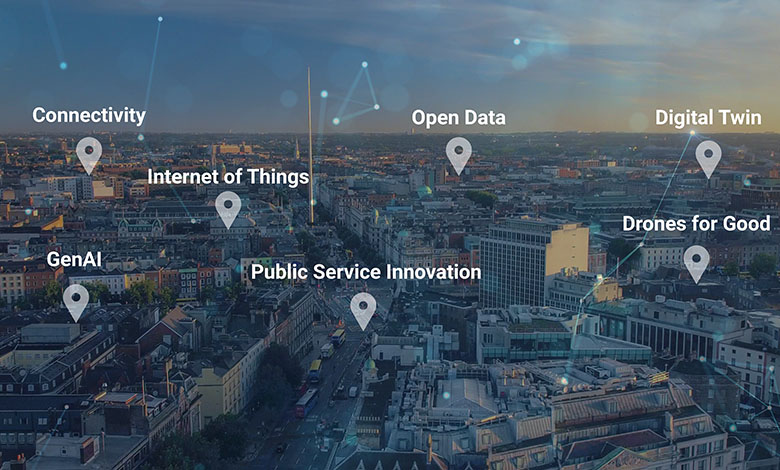
As regions around the world race to adapt to the challenges of climate change, population growth, and digital transformation, Dublin has positioned itself as a leader in urban innovation.
Launched in 2016, Smart Dublin is a collaboration of the four Dublin local authorities (DLAs) working with public sector bodies, academia, industry, and citizens to tackle urban challenges using emerging technologies and data-driven solutions.
To accelerate innovation, Smart Dublin adopted the smart district approach, concentrating pilot projects in targeted locations across Dublin: Smart Docklands, Smart DCU, Smart D8, Smart Balbriggan, Smart Dún Laoghaire, and Smart Sandyford. Smart Dublin’s innovation projects are typically led by one or more of the local authorities and piloted at a smart district.
Transforming local authority services
Your local council provides hundreds of services which support communities, infrastructure, and local development. These include social housing provision, road and transport upkeep, planning and development control, environmental monitoring, the fire and emergency response, etc. Each of these services is open to new ways of working that can leverage new technologies and insights from the corresponding data.
By transforming these public services, Dublin is becoming a ‘smarter region’. Some examples of our work to transform council services includes:
- Hyperlocal Air Quality: We captured over 50 million street-level air quality data measurements of Dublin City over a period of 16 months. The project was delivered in partnership with Google, using their first electric Street View car equipped with Aclima’s mobile air sensing platform. This data is now openly available to the public to support further research and to increase awareness of air quality levels in Dublin.
- Play your part; alert us to rough sleepers: The Dublin Rough Sleeper Alerts app enables members of the public to alert the outreach teams to the location of anyone sleeping rough. This enables the outreach teams to rapidly make contact and provide support. Since its launch at the end of 2020, over 6,000 alerts have been submitted by the public.
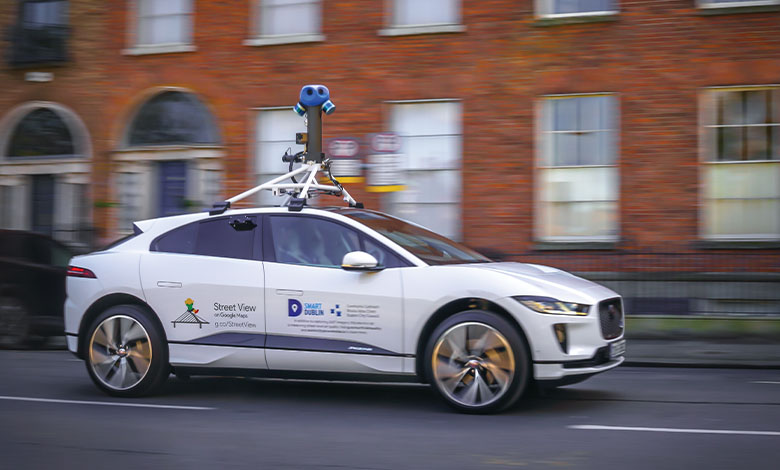
- A Stolen Ring Buoy is a Stolen Life: Every week, ring buoys go missing or are tampered with in Dublin. We used an innovation procurement process to explore lowcost sensor technology to provide real-time alerts when ring buoys are stolen or tampered with. Over 600 sensors have been deployed by multiple Irish local authorities.
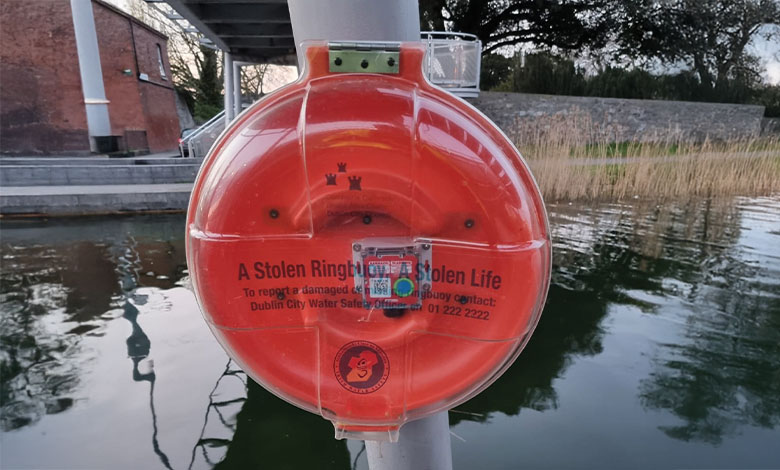
Applying the same emerging technology in diverse ways
A big part of Smart Dublin’s remit is to trial emerging technologies to understand the opportunities they may unlock. There is also a need for us to act as a custodian to ensure new technology is used in an ethical way. When a trial is successful and lessons have been learned, the technology can be scaled up and adopted by day-to-day council services. Examples of applying an emerging technology include:
- If it is dirty, dangerous, or dull, a drone should do it: Local authorities are now using drones for many services such as survey and mapping (e.g., hard-to-reach areas), infrastructure and dangerous building inspections, environmental monitoring, emergency response, etc. The use of drones is improving safety, cutting costs, and speeding up service delivery.
- Digital twins and 3D models: Can visualise, and simulate a physical environment in ways that could not be done before. Council use cases include emergency response, energy retrofits, public consultation, and much more.
- GenAI: We launched a Generative AI Lab to explore how AI technologies can improve the way local authorities serve their communities – while making sure AI is used responsibly and ethically. This is a collaboration with the ADAPT Research Ireland Centre and Trinity Business School.
Championing Open Data
Transparency and data sharing are pillars of Smart Dublin’s approach. Our Open Data Platform (Dublinked) hosts over 800 datasets, providing freely available information on many local services ranging from real-time bike-share information to noise pollution readings to registers of derelict sites. By making this data freely available, it fosters a culture of openness and transparency across Dublin’s local authorities.
A great example of open data in action is our Active Travel Dashboard, which serves as a ‘one-stop-shop’ for analysing patterns of walking and cycling across the Dublin region. By aggregating data from multiple sources – census data, Google trips data, and EcoCounter sensors – the dashboard highlights the positive impact of active travel for your locality (e.g. health, fuel savings, CO₂ avoided, etc.)
Demystifying ‘Smart Cities’
Smart Dublin also promotes an inclusive smart community through awareness, skills, and confidence-building. We want to upskill diverse stakeholders and demystify the term ‘Smart Cities’. Examples of our education activities include:
- Telecoms for Everyone: Provides clear information about the telecoms infrastructure which supports digital connectivity across our region. In partnership with the CONNECT Research Ireland Centre for Future Networks and Communications, we produced a series of engaging, fact-based videos. Telecoms for Everyone highlights how advances in communication networks are transforming everyday life in Dublin.
- ‘Design Your Future City’: A week-long programme delivered by Smart Docklands’ Academy of the Near Future team for TY students to explore the role of technology in addressing urban challenges through hands-on workshops and creative activities.
- IoT with Otie: A comic strip series showcasing and demystifying the Internet of Things (IoT). The series includes five stories exploring the history, evolution, and current impacts emanating from IoT.
If you would like to stay informed on the work of Smart Dublin, you can sign up for our quarterly email newsletter- Smart Updates.
Scan the QR code to join our mailing list.
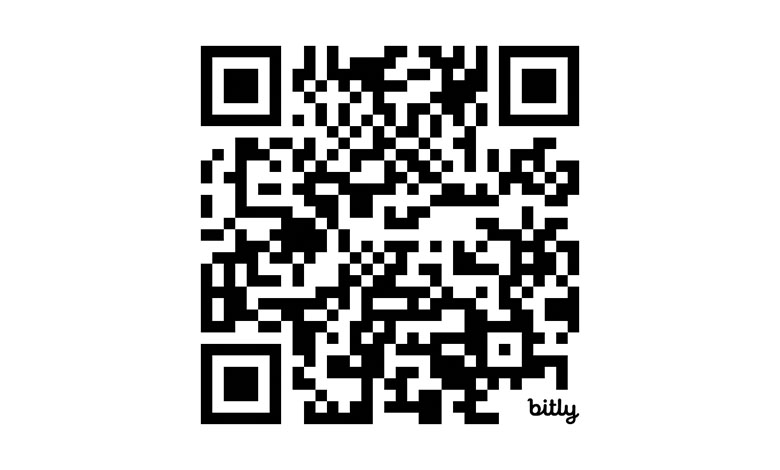
E: info@smartdublin.ie
W: www.smartdublin.ie

